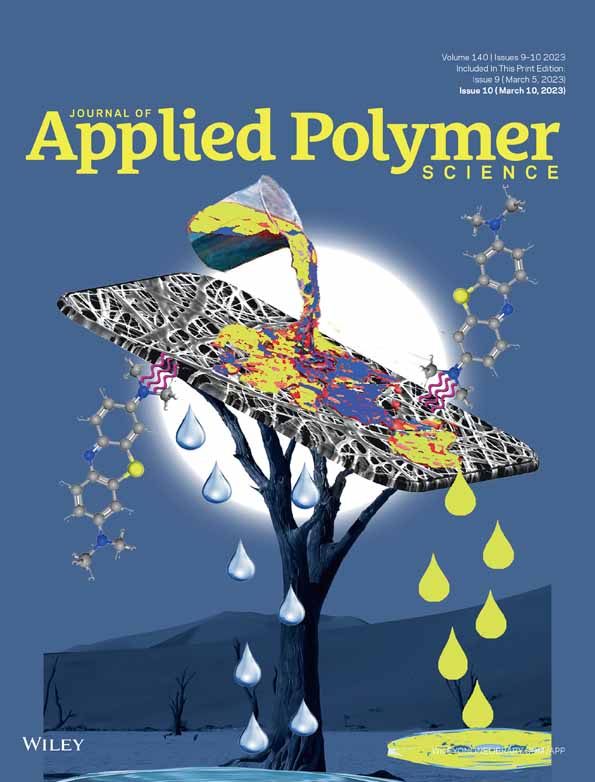Effects of alkali metal catalysts on the melt fluidity of polycarbonates with different degrees of polymerization
Funding information: Key Research and Development Program of Zhejiang Province, Grant/Award Number: 2020C01010; National Natural Science Foundation of China, Grant/Award Number: 51973196; Special Support Plan of Zhejiang Province, Grant/Award Number: 2019R52012
Abstract
The melt fluidity of polycarbonate (PC) significantly influences the processing, while the melt viscosity depends on the molecular structure. Specifically, the melt viscosity increases sharply with the increase of polymerization degree. However, the influence mechanism of alkali metal catalysts on the fluidity by affecting the molecular structure remains unclear. Herein, high and low concentrations of NaOH catalysts were used to synthesize PC with different polycondensation degrees. The effect of NaOH catalyst content on the molecular structure and thus melt fluidity of PC were systematically characterized and discussed employing NMR spectroscopy, absolute and relative molecular weight, intrinsic viscosity, melt flow index, and thermal analysis. The results show that a random branched structure of the PC molecular chain caused by excess NaOH improves the melt flowability. However, the residual NaOH promotes the degradation of carbonate bonds during thermal processing, resulting in poor PC stability. Based on the above discussion, empirical fitting equations are proposed to describe the relationship between molecular structure and flow properties, which provides a new way to judge PC performance.
Open Research
DATA AVAILABILITY STATEMENT
The data that support the findings of this study are available in the supplementary material of this article.




